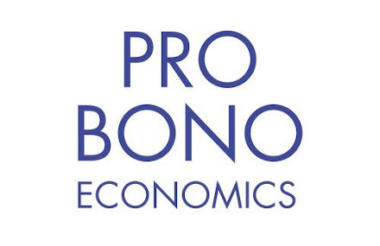Charities say they are bracing themselves for a difficult year ahead, as new research highlights “five interconnected fronts of demand”.
Findings from the latest edition of Pro Bono Economics’ Covid Charity Tracker, were published today and show that 75% of respondents are preparing for high demand through 2021.
Indeed, the research, which is conducted in partnership with the Chartered Institute of Fundraising and Charity Finance Group, says that most respondents have already seen a rise in demand, in part due to people turning to charity services for the first time as well as existing service users seeking more help than previously.
Over 200 charities responded to the November survey.
Just 17% of respondents said that they had not seen a rise in demand. 11% attributed a rise in demand solely to new clients, while nearly one in five said it was higher demand from existing clients. 39% said it was a combination of both factors.
One charity experiencing higher demand is DeafBlind UK, which has seen calls increase from around 300 per month to 1,400.
Shirley Scotcher, director of fundraising and marketing at DeafBlind UK said: “We support people with sight and hearing loss and whereas they usually are able to access face-to-face befrienders or our social groups, many of them are completely isolated now. They’re struggling to access to food, prescriptions and it’s affecting mental health. When your hands are your eyes, feeling your way around in a pandemic is incredibly difficult. So our members are coming to us more and more, for advice, support, and just a friendly voice sometimes.”
‘Five interconnected fronts of demand’
Today’s report identifies five “interconnected fronts of demand”.
Firstly, many charities have seen a long-term rise in demand for their services, particularly around issues like homelessness. But these issues have been intensified this year.
Then there are problems that are as a direct consequence of the pandemic, and the restrictions imposed by lockdown. Examples include more people seeking support with their mental health
There are also “build-ups and backlogs” due to social distancing and “spillover effects” where the worsening conditions in the wider economy place more pressure on services like foodbanks.
Finally, there are fewer charities capable of meeting demand, with 10% of charities saying they are at risk of closing, others anticipate that extra demand will be transferred when services fold.
‘Things are not getting any easier’
Meanwhile eight in 10 respondents expect a continued decline in their income over the next 12 months, relative to their pre-crisis expectations, and sector leaders urged the government to give more funding and support to charities.
Matt Whittaker, CEO of Pro Bono Economics, said: “Charities have demand for their support coming from every direction, and it shows no signs of dissipating. Challenges that existed before the pandemic have not gone away. The fallout we see today in terms of isolation and mental ill health is expected to continue. Then there are backlogs to tackle, while economic consequences worsen. At a time when resources are diminished, it all adds up to charity crunch where need outweighs the sector’s ability to meet it next year.”
“As the government considers how to soothe the social scars Covid has created, charitable organisations can be a core ingredient of the balm the country needs. But the sector can only play that crucial role if ways are found to urgently inject more resource.”
Caron Bradshaw, chief executive of the Charity Finance Group, said: “Our communities are struggling with the direct and indirect impact of this pandemic and 2021 is expected to be another difficult year for many. Charities are the backbone of society and have proved their value time and again during this crisis. What charities offer and deliver is essential to those people who rely on them.”
She highlighted that it took the sector 10 years to recover from the 2008 financial crash, and added: “Relatively modest investment to support charities to meet those demands now could make the difference between permanently losing what they offer– depriving generations to come – and preserving their services.”
Daniel Fluskey, head of policy and external affairs at the Chartered Institute of Fundraising, said: “Nine months into the pandemic things are not getting any easier, and while charities have cut costs and made savings wherever possible, too many are simply now running on empty. It’s a matter of time before we lose some charity services, or organisations, for good. The research shows that there are multiple and overlapping demands - no charity is the same as any other - so we need appropriate support from government that can help charity services continue for the people and communities that need them, and for the benefit of us all.”
Related articles











